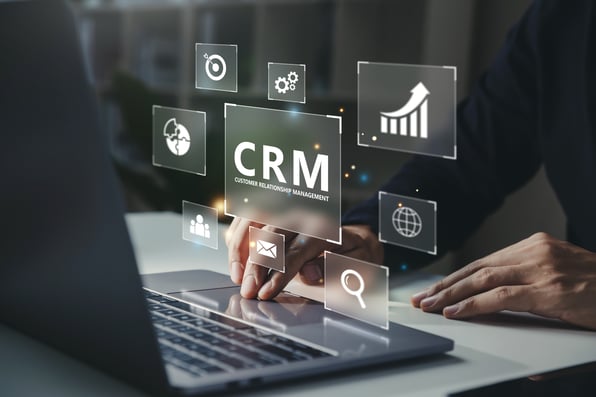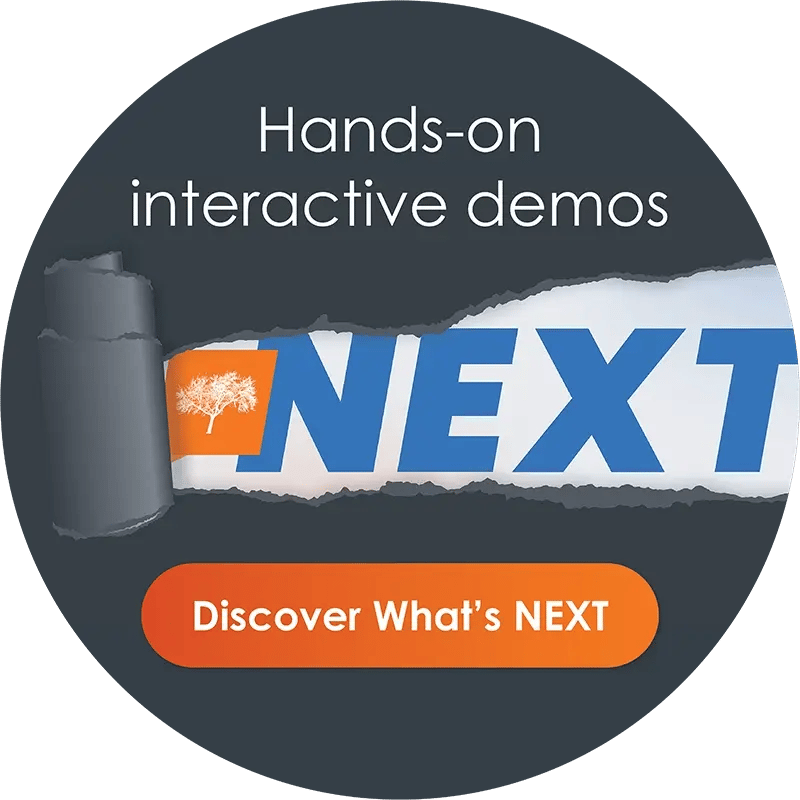Top CRM Features that support Sales, Marketing, and Operations in Senior Care

In many senior care communities, sales, marketing, and operations teams work in separate systems with little visibility into each other’s workflows. This lack of alignment often results in missed leads, delayed follow-ups, and breakdowns in communication, especially around unit availability and move-in readiness.
When an organization’s customer relationship management (CRM) system is built specifically for senior care and designed to serve all three teams, it unifies insights, improves coordination, and streamlines the journey from first inquiry to full occupancy. But not every CRM is equipped to support the complexity of senior living.
Why Senior Care Needs a Purpose-Built CRM
General-purpose CRMs often fall short in senior living communities. They’re built for fast, transactional sales not emotional, high-stakes decisions like choosing a care setting for a loved one. A CRM tailored for senior care must reflect the realities of your business model, sales cycle, and care delivery.
Here are the key differences between general and senior-living-specific CRMs:
- Supports longer, relationship-driven sales cycles: Senior care decisions often involve multiple stakeholders including adult children, spouses, physicians, and care managers. Each with different needs and timelines. A senior care CRM helps teams track every contact, nurture relationships over time, and adapt messaging for every stage of the decision journey.
- Follows residents across the full care lifecycle: From initial inquiry and tour to waitlist, move-in, care transition, or discharge, a senior care CRM tracks every step. Unlike general CRMs that stop after a closed “deal,” senior care systems offer full visibility into the resident journey, supporting better forecasting and re-engagement over time.
- Prioritizes clinical and care context from the start: Move-in readiness often depends on factors like care level needs, acuity, or service eligibility. Purpose-built CRMs allow sales teams to capture that information early and share it seamlessly with care teams, creating smoother handoffs and fewer last-minute delays.
- Aligns sales, marketing, and operations in one platform: A senior living CRM integrates with EHR and community management tools to share real-time data like unit availability, readiness status, and service requirements. That alignment allows all teams to make faster, better-informed decisions.
Essential CRM Features That Elevate Sales, Marketing, and Operational Teams
To unify your teams and increase occupancy with less friction, the CRM you choose should include features that serve multiple departments at once. Below is a look at the key CRM features senior care organizations need.
Lead & Referral Source Tracking
Having a single view of where leads come from helps teams optimize budgets and prioritize high-performing sources.
Specific Capabilities You Should Look For:
- Auto-tagging based on lead source (referral partner, online forms, etc.)
- Attribution tracking for digital and offline acquisition channels
- Tools to manage paid and unpaid referrals
Lead Scoring and Qualification Workflows
Not all inquiries are created equal. Scoring leads by readiness, eligibility, or timeline helps your sales team follow up efficiently while identifying long-term nurture opportunities.
Specific Capabilities You Should Look For:
- Custom scoring based on lead behavior, demographics, or payer type
- Ability to qualify leads by care level or room availability
- Waitlist and priority queue capabilities
Centralized Contact and Communication Logs
Tracking every email, call, tour, and note in one place across roles and departments ensures continuity and prevents lost follow-ups or duplicate outreach.
Specific Capabilities You Should Look For:
- Complete history of all staff interactions
- Centralized resident/prospect records
- Secure, role-based access for sales, marketing, and operational teams
Real-Time Availability and Unit Management
Salespeople need up-to-date visibility into which rooms or units are vacant, reserved, or pending move-in without chasing spreadsheets or phone calls.
Specific Capabilities You Should Look For:
- Room/unit status available in real time
- Notifications when units become available
- Integration with occupancy dashboards or operations views
Marketing Campaign Management and Segmentation
The right CRM solution will support targeted outreach and automated campaigns, tracking what’s working to generate high-value leads.
Specific Capabilities You Should Look For:
- Campaign performance dashboards
- Audience segmentation by location, payer source, interest, etc.
- Tools to automate email or text follow-ups
Task Assignments and Automated Workflows
Whether it’s sending reminders, escalating leads, or sharing data with other departments, teams need task automation to keep leads moving forward.
Specific Capabilities You Should Look For:
- Automated workflows triggered by lead activity
- Task assignments across departments (sales, care, admin)
- Notifications to keep updated records and timelines
Reporting Dashboards by Role
Each team needs tailored access to the CRM’s data. A regional operator needs macro-level census forecasting, while a sales counselor needs today’s follow-up list.
Specific Capabilities You Should Look For:
- Role-based dashboards for sales, marketing, and operations
- Occupancy reporting by location and timeframe
- After-action reports on move-ins, conversions, and referrals
Mobile Access and Remote Functionality
Sales and marketing professionals often work offsite at events, tours, or meetings. A mobile-accessible CRM helps keep everything updated in real time.
Specific Capabilities You Should Look For:
- Full CRM access via mobile or tablet
- Easy call logging, follow-ups, and lead review
- Offline entry with auto-sync
Integration with EHR and Billing Systems
When a CRM connects seamlessly with EHR and financial systems, admissions get easier, resource planning gets smarter, and operational gaps close faster.
Specific Capabilities You Should Look For:
- Automatic handoff from CRM to care team for assessments
- Shared resident profiles across systems
- Notification back to sales when a move-in occurs
Cross-Team Benefits of the Right Senior Living CRM
When the features listed above are active and aligned, the whole organization benefits. From faster move-ins to better staffing workflow awareness, here’s a look at the cross-functional advantages it offers.
Improved Occupancy Forecasting
With real-time insights into leads, unit availability, and conversion rates, a high-quality CRM can help communities better predict census and avoid revenue gaps.
Shorter Lead-to-Move-In Time
Automations, lead qualification tools, and centralized communications help prospects move through the sales pipeline faster, and with a more personalized touch.
More Timely Insights & Accurate Marketing
Tightly integrated marketing and CRM data can reveal which campaigns, content, or referral relationships are delivering meaningful results.
Optimized Staffing & Resource Planning
Operations teams can use CRM data to plan care, apartment turnover, or staffing based on forecasted move-ins and resident transitions.
How Eldermark's CRM Supports the Full Resident Lifecycle
The Eldermark CRM is built specifically for senior living communities to bridge the gap between sales, marketing, and operations. From inquiry and referral tracking to integrated move-in workflows, it’s designed to streamline every phase of the resident journey.
The unique advantages of our CRM include being able to:
- Track every sales touchpoint and referral source
- Score and prioritize leads based on readiness and service needs
- Automate communication and task handoffs between departments
- View up-to-date availability data to match prospects quickly
- Support on-the-go sales with mobile access to your full CRM database
Best of all, our CRM is fully integrated with the entire , including EHR, billing, care delivery, and analytics. That means your teams stay aligned from first contact to ongoing care.
Unlock Cross-Department Success with an Eldermark CRM
With Eldermark, your sales and marketing teams stay focused on the right leads. Your operations team prepares proactively for transitions. And your executive team gains actionable insight into future occupancy trends. Ready to build a smarter pipeline? Schedule a demo today or contact our team to find out how we can help.




